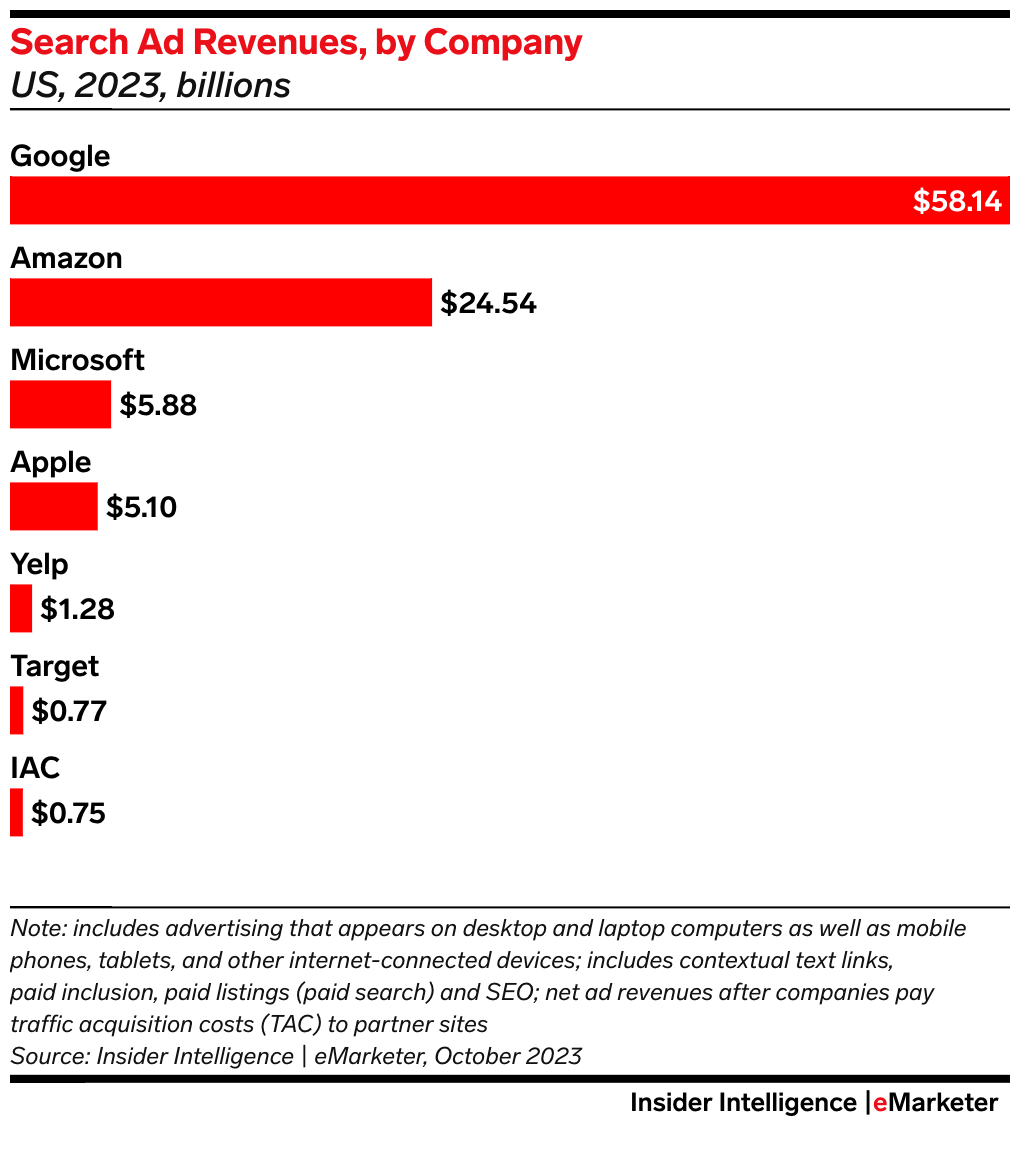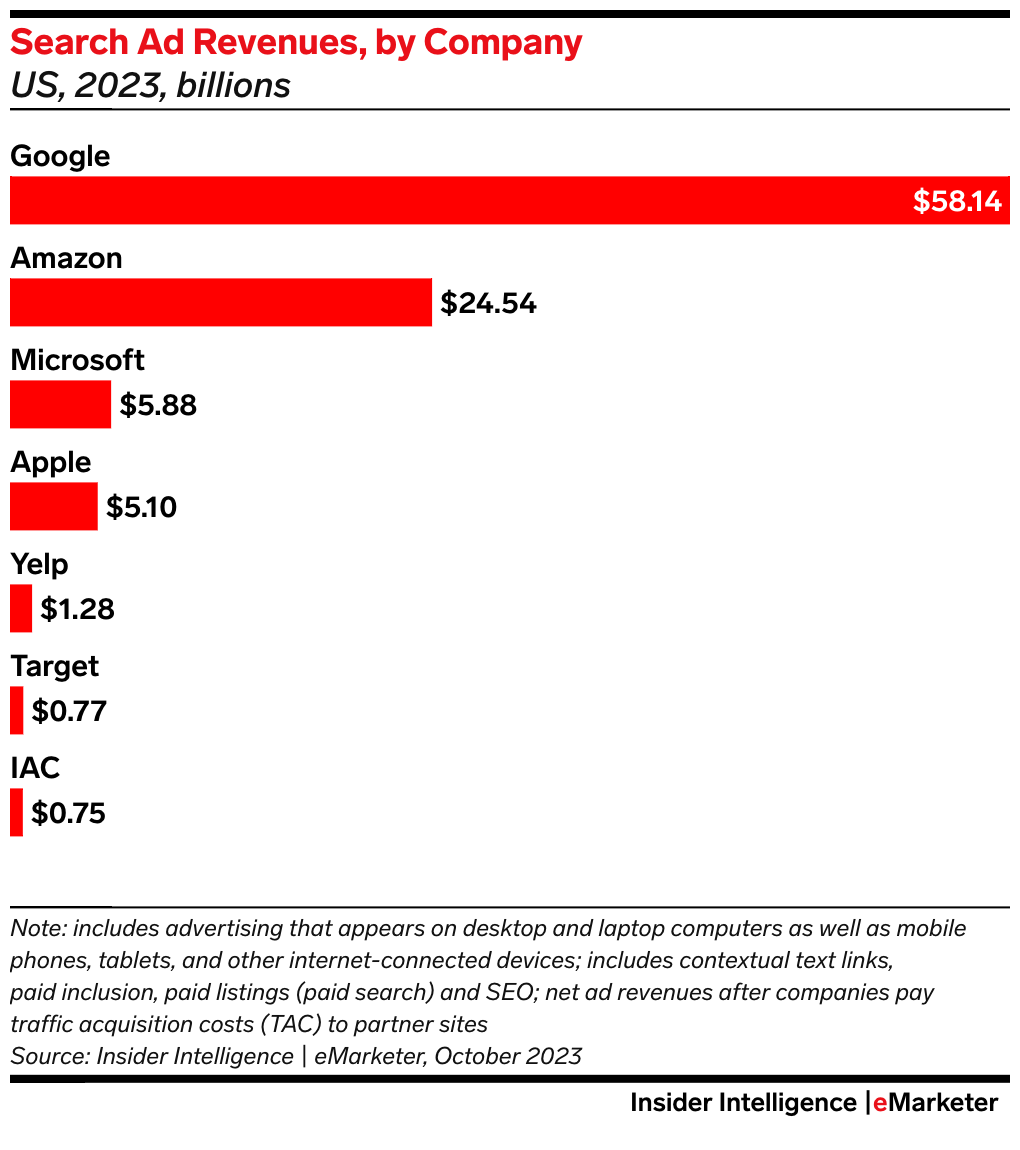Industries Overview
Our research focuses on the five core coverage areas below. We apply our rigorous research methodology to our reports, charts, forecasts, and more to keep our clients at the forefront of key developments and trends before they hit the mainstream.
Latest Articles
Browse All →Holiday spending will exceed pre-pandemic levels for first time
Article |
Dec 4, 2023
Social media put a scare into another bank’s investors after a risky investment soured
Article |
Dec 4, 2023
Prime Video misses the mark on Black Friday football, but it’s not a loss
Article |
Dec 4, 2023
Grocery, in-store pickup drive click-and-collect growth
Article |
Dec 4, 2023
5 charts to prepare marketers for 2024
Article |
Dec 4, 2023
For banks, mobile and social are the keys to building awareness among younger consumers
Article |
Dec 4, 2023
Retail media is the fastest growing ad channel, but ‘is not invincible,’ our analyst warns
Article |
Dec 4, 2023
3 recent retail media developments and why they matter
Article |
Dec 4, 2023
Customers don’t understand what factors into banks’ lending decisions—and they want more control
Article |
Dec 1, 2023
Gen Z turns to YouTube for banking information
Article |
Dec 1, 2023
Products
Insider Intelligence delivers leading-edge research to clients in a variety of forms, including full-length reports and data visualizations to equip you with actionable takeaways for better business decisions.
Forecasts
Interactive projections with 10k+ metrics on market trends, & consumer behavior.
Learn More →Charts
Proprietary data and over 3,000 third-party sources about the most important topics.
Learn More →Industry KPIs
Industry benchmarks for the most important KPIs in digital marketing, advertising, retail and ecommerce.
Learn More →About Insider Intelligence
Our goal at Insider Intelligence is to unlock digital opportunities for our clients with the world’s most trusted forecasts, analysis, and benchmarks. Spanning five core coverage areas and dozens of industries, our research on digital transformation is exhaustive.
Methodology
Rigorous proprietary data vetting strips biases and produces superior insights.
Learn More →Events
Browse our upcoming and past events, recent podcasts, and other featured resources.
Learn More →Google ads’ placement on blacklisted and sanctioned sites raises brand safety concerns
Insider Intelligence
Media Services
Free Content
Contact Us →
Worldwide HQ
One Liberty Plaza9th FloorNew York, NY 100061-800-405-0844
Sales Inquiries
1-800-405-0844ii-sales@insiderintelligence.com
* Copyright © 2023
Insider Intelligence Inc. All Rights Reserved.

